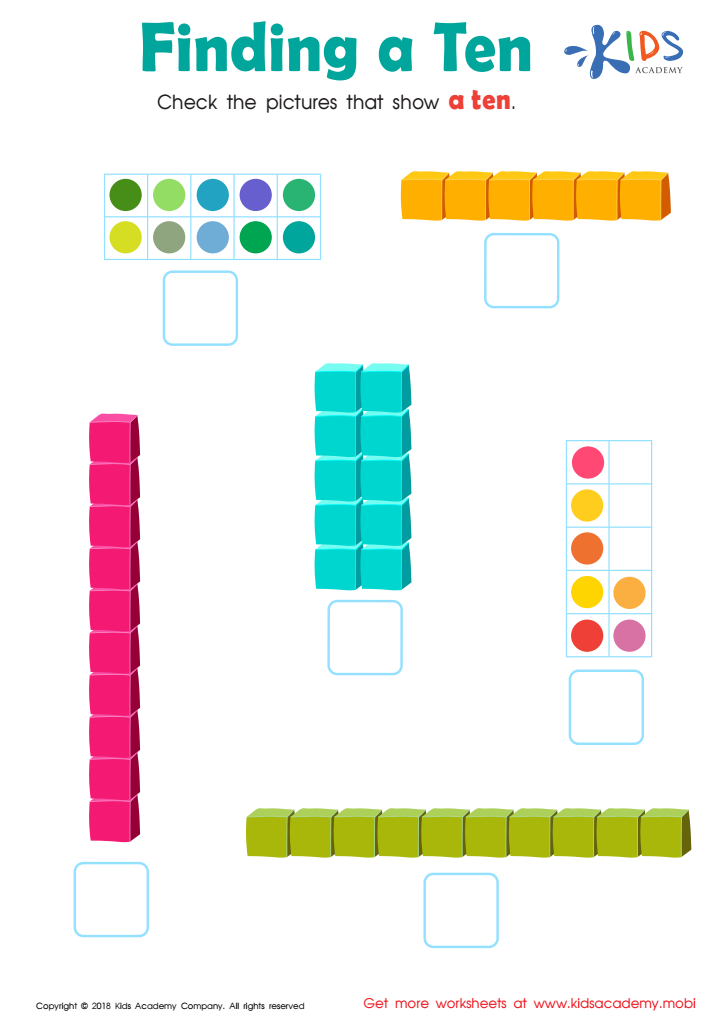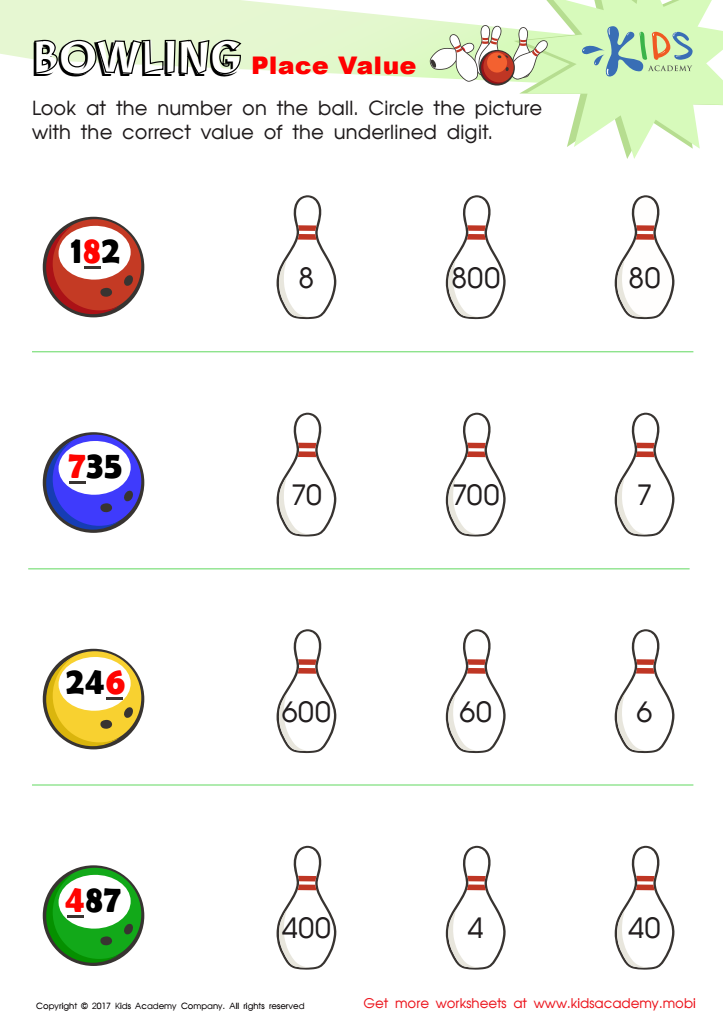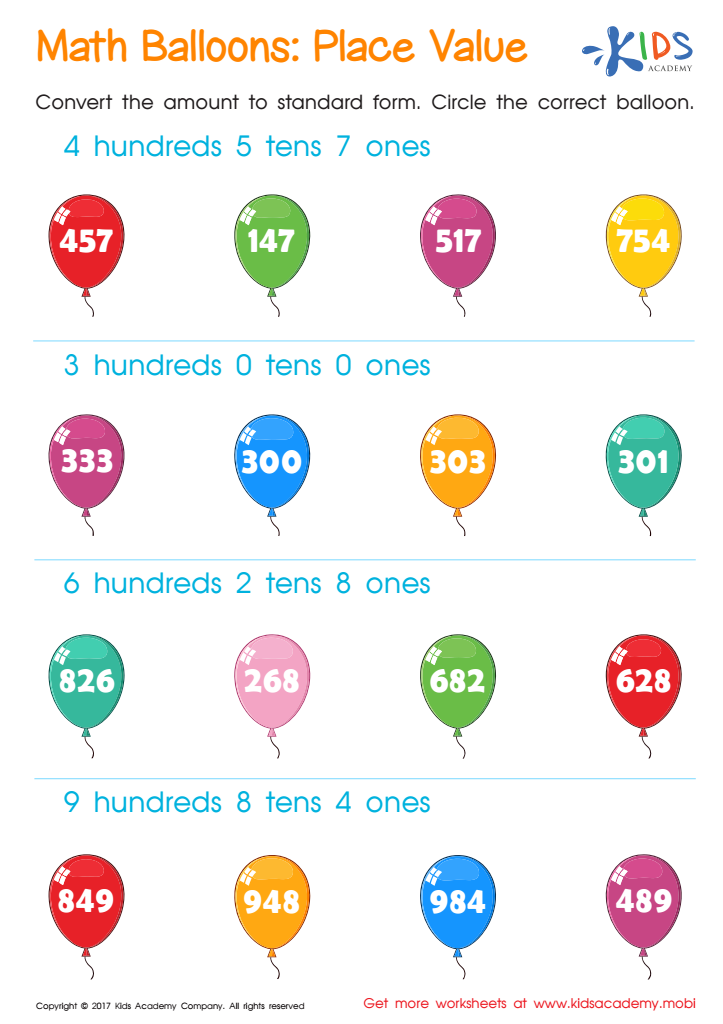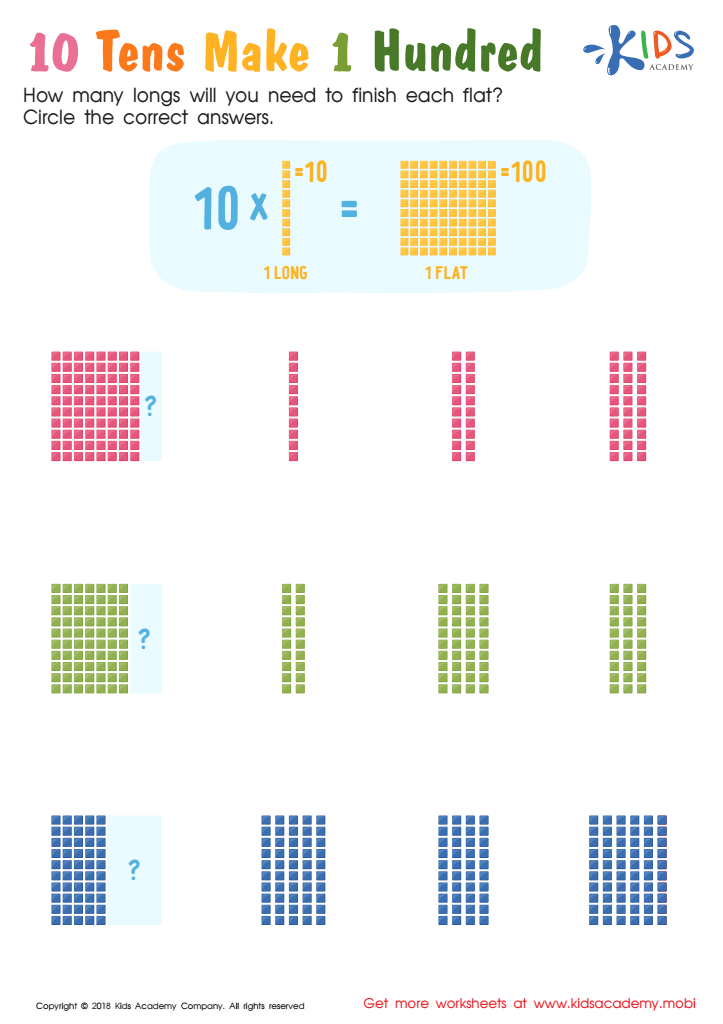Recognizing number patterns Worksheets for Ages 4-8
5 filtered results
-
From - To
Boost your child's math skills with our engaging "Recognizing Number Patterns Worksheets" tailored for ages 4-8. Specially designed to foster early numeracy, these printable worksheets help kids identify sequences, enhance critical thinking, and refine problem-solving abilities. Ideal for preschool to 2nd grade, the activities range from simple patterns to more complex sequences, keeping young learners motivated and challenged. Each sheet incorporates colorful visuals and fun exercises, making learning an enjoyable adventure. Whether in the classroom or at home, these worksheets are perfect tools to enhance your child's pattern recognition and build a strong math foundation.


Finding a Ten Worksheet


Place Value Worksheet


Place Value Printable Worksheet


10 Tens Make 1 Hundred Worksheet
Recognizing number patterns is crucial for young children, especially those aged 4-8, as it lays the foundational groundwork for more advanced mathematical concepts. Early exposure to number patterns enhances a child’s critical thinking and problem-solving skills. This early learning stage, kids' mental framework is highly adaptable, making it the perfect time to introduce patterns that cultivate logical reasoning and sequencing skills essential in mathematics and everyday life.
Parents and teachers play a central role by engaging children with pattern activities, such as counting by twos or identifying the next shape in a sequence. These activities not only make learning enjoyable but also help children understand the regularities in numbers, promoting a sense of order in the world around them. This comprehension makes arithmetic operations, like addition and multiplication, easier to grasp as these concepts are just extensions of basic patterns learned early on.
Moreover, mastering number patterns boosts a child's confidence in their mathematical abilities, encouraging a positive attitude towards the subject. It equips them with the tools to tackle math challenges systematically, fostering a smoother transition to higher-level math topics in the future. Therefore, recognizing and promoting awareness of number patterns in young children is not just educationally beneficial but also crucial for their overall cognitive development.
 Assign to My Students
Assign to My Students






















